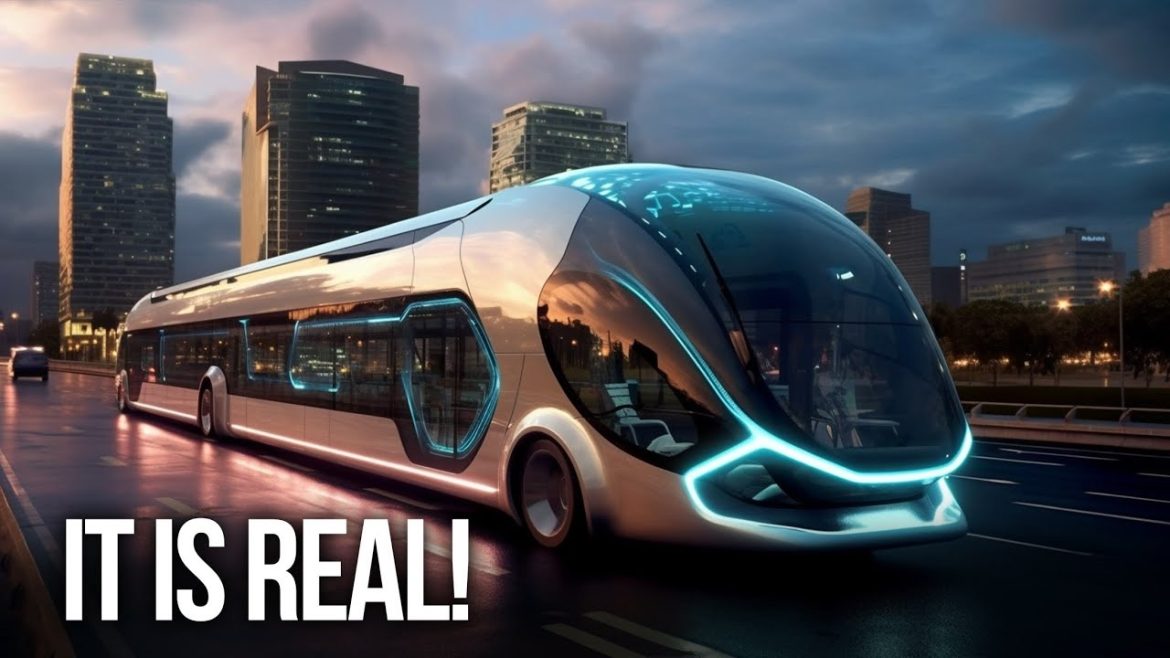The way we think about transportation is on the brink of a revolutionary transformation. Emerging technologies promise to redefine how we move people and goods efficiently and sustainably. Among these innovations, the Hyperloop stands out as a potential game-changer. In this article, we will explore the future of transportation, with a focus on the Hyperloop and other groundbreaking developments that hold the promise of faster, safer, and more environmentally friendly mobility.
The Hyperloop Concept
Revolutionizing High-Speed Travel
The Hyperloop, conceptualized by Elon Musk in 2013, is a mode of high-speed ground transportation that could propel passenger pods through low-pressure tubes at incredible speeds. Using a combination of magnetic levitation and vacuum technology, the Hyperloop aims to minimize air resistance and friction, allowing for travel speeds of up to 760 miles per hour (1,220 kilometers per hour). This would revolutionize long-distance travel, turning hours of commute time into mere minutes.
Environmental Benefits
One of the key advantages of the Hyperloop is its environmental friendliness. Because it operates in a near-vacuum environment, the energy required for propulsion is significantly reduced compared to traditional modes of transportation. Additionally, the system can be powered by renewable energy sources, further reducing its carbon footprint.
Challenges and Development
Technological Challenges
While the Hyperloop holds immense promise, it is not without its challenges. Developing the necessary infrastructure and ensuring passenger safety are paramount concerns. Researchers and engineers are diligently working on solving technical issues, such as maintaining a low-pressure environment over long distances and mitigating potential pod collisions.
Hyperloop Projects Worldwide
Several companies and organizations are actively working on Hyperloop projects worldwide. Virgin Hyperloop, for example, has made significant progress with successful test runs of its passenger pods. Similarly, the European Hyperloop Consortium is exploring the feasibility of a high-speed transportation network that connects major European cities.
Beyond the Hyperloop: Other Innovations
Autonomous Vehicles
In addition to the Hyperloop, autonomous vehicles (AVs) are poised to redefine the future of transportation. These self-driving cars, trucks, and drones have the potential to significantly reduce traffic congestion, accidents, and fuel consumption. Companies like Tesla and Waymo are at the forefront of AV development.
Electric Vertical Takeoff and Landing (eVTOL) Aircraft
Electric vertical takeoff and landing aircraft, often referred to as flying cars, are another exciting development. These vehicles promise to alleviate urban congestion by taking to the skies for short trips. Companies like Joby Aviation and Lilium are actively working on eVTOL prototypes.
Maglev Trains
Magnetic levitation (maglev) trains are gaining traction as a high-speed, energy-efficient mode of transportation. Maglev trains use powerful magnets to levitate above the tracks, eliminating friction and allowing for faster speeds. Countries like Japan and China have operational maglev train systems, and further expansion is planned.
The Future of Transportation Ecosystem
Integration and Sustainability
The future of transportation is not limited to a single mode but rather an integrated ecosystem. Mobility-as-a-Service (MaaS) platforms are emerging to provide users with seamless, multi-modal transportation options. Sustainability is also a driving force, with electric and renewable energy sources powering many of these innovations.
Urban Planning and Infrastructure
As transportation evolves, urban planning and infrastructure must adapt. Cities are reimagining streetscapes, prioritizing pedestrians and cyclists, and developing smart transportation networks. Public transportation is becoming more efficient and interconnected, reducing reliance on personal vehicles.
Conclusion
The future of transportation is a thrilling frontier, with the Hyperloop and other innovations promising to redefine the way we move. While challenges remain, the potential benefits in terms of speed, sustainability, and efficiency are undeniable. As technology continues to advance and global collaboration accelerates, we can look forward to a future where transportation is faster, safer, and more environmentally friendly than ever before. The journey to this future is an exciting one, and it holds the promise of transforming the way we experience the world.
